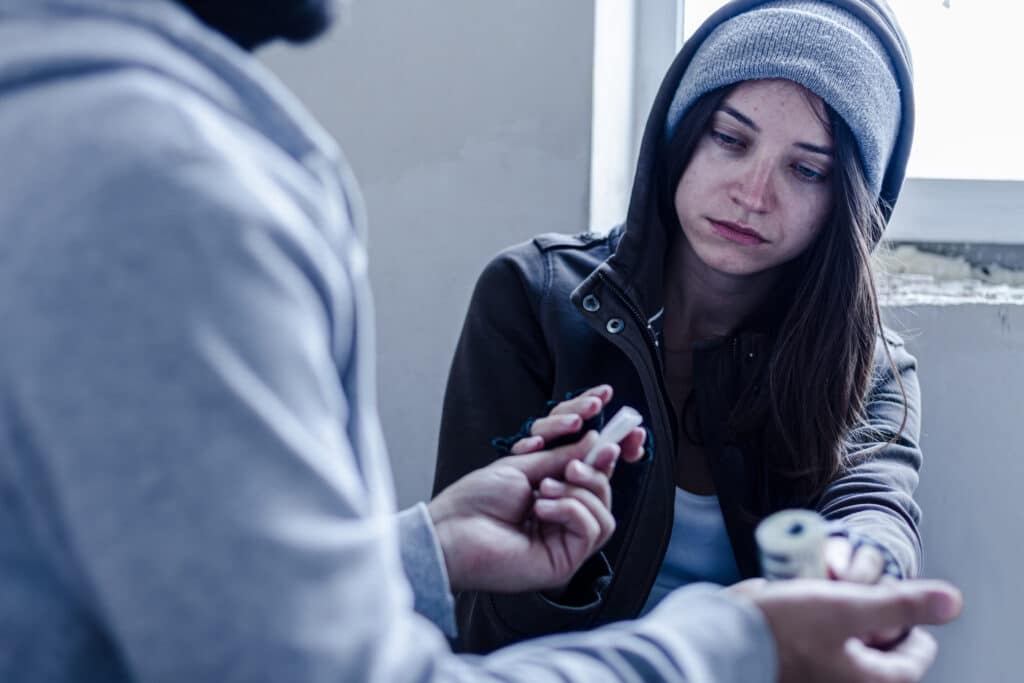How to support a child with mental health issues and substance abuse, and find appropriate placement
The teenage years are difficult. Being a kid is more complicated than it ever has been, and the older a child gets, the more pressures mount. As grades, athletics, social media, college applications, strict parents, pandemics, and climate change demand their attention from the outside, we can forget about what might also demand their attention from the inside. With so much external input, the mental health of our children has never been worse. Some studies estimate that upwards of 1 in 5 children suffer from a mental illness or mental health problem.
Depression, anxiety, attention deficit hyperactivity disorder (ADHD), autism spectrum disorder (ASD), post-traumatic stress disorder (PTSD), bi-polar disorder, and other mood disorders like borderline personality disorder (BPD) are all on the rise among our youth. When mental health conditions go untreated, children learn to find other ways to make themselves feel better. Many times, these coping mechanisms are sought out of desperation, and are unhealthy or dangerous.
What is a Dual Diagnosis?
A dual diagnosis is when at least two comorbid conditions occur concurrently,or at the same time. Usually, a dual diagnosis refers to a comorbid mental illness and a substance abuse disorder.
The key problem with dual diagnosis is that many times, only the substance abuse gets treated, and not the mental health component. Or other times, only a child’s mental health disorder is treated, without treating the substance abuse. It is important to know recognize issues with your child’s mental health, and recognize signs of drug use. The best centers will treat the whole person and choose a treatment center that addresses both equally and understands how they work together.
In young adults, more often than not, drug use is purely a coping mechanism for underlying, untreated mental health issues. For this reason, both diagnoses in a dual diagnosis must be treated simultaneously. Treating the mental health conditions is vital if the young person is going to recover from substance abuse and move in a positive direction.
Where to Start
Once your child has been diagnosed with a dual diagnosis, the first thing to do is to get informed. The more information you have about your child’s mental health problem, the more equipped you are to handle it. There are a wellspring of information about mental illness, mental health disorders, and drug abuse in teens written by mental health professionals.
The second step is to seek help from a dual diagnosis center or mental health professional. Keep in mind that professional substance abuse rehabilitation clinics that specialize in dual diagnosis are best.
Get Help as Soon as Possible
Once it has been determined that your child is suffering from both substance abuse and mental health problems, there is no time to waste. At Clear Recovery Center, our teen program is staffed with professionals who have dedicated their lives to helping teens and their families who struggle with mental disorders and drug abuse.
How to Support a Child with Dual Diagnosis and Substance Abuse
The most critical role that you play as a parent of a child with a dual diagnosis is to love them. Approaching the issue with both love and boundaries is key. Seeking the help from a mental health professional who has the ability to evaluate the situation, conduct an interview, and ultimately introduce a recovery action plan is paramount in helping your child heal.
Find a Mental Health and Substance Use Professional
Healing starts by finding an expert who can help. Regardless of the substance, we are here to help and have spent years helping both families adopt new coping skills and overcome the mental health and substance use issues that they are affected by.
How to Choose a Facility
Aside from assuring that the program you choose treats both mental health problems and substance abuse simultaneously, its also important to ensure that your plan of action includes a comprehensive family program. Family therapy is key in order to bolstering your child’s emotional health, as well as helping to treat your own mental health. With young adults and teens, a family must be involved in the healing process for optimal outcomes.
Clear Recovery Center’s Teen Program teaches strategies for dealing with childhood mental disorders, substance abuse, and dual diagnosis to help teens learn ways of interacting with the world that are healthy and positive, to replace the old behaviors that were harmful and did not work.
Parents as the Guide
Remember, even if your teen is highly resistant to getting help, they may to you for guidance. Understanding and expecting the process to take time is very important when embarking on this journey. The rehabilitation process is not a quick one, but it’s well worth it.
If your child is abusing drugs or alcohol, consider contacting Clear Recovery Center’s teen program. We will work with you and your teen to develop a treatment plan that meets their specific needs. If your child is struggling, don’t give up.

